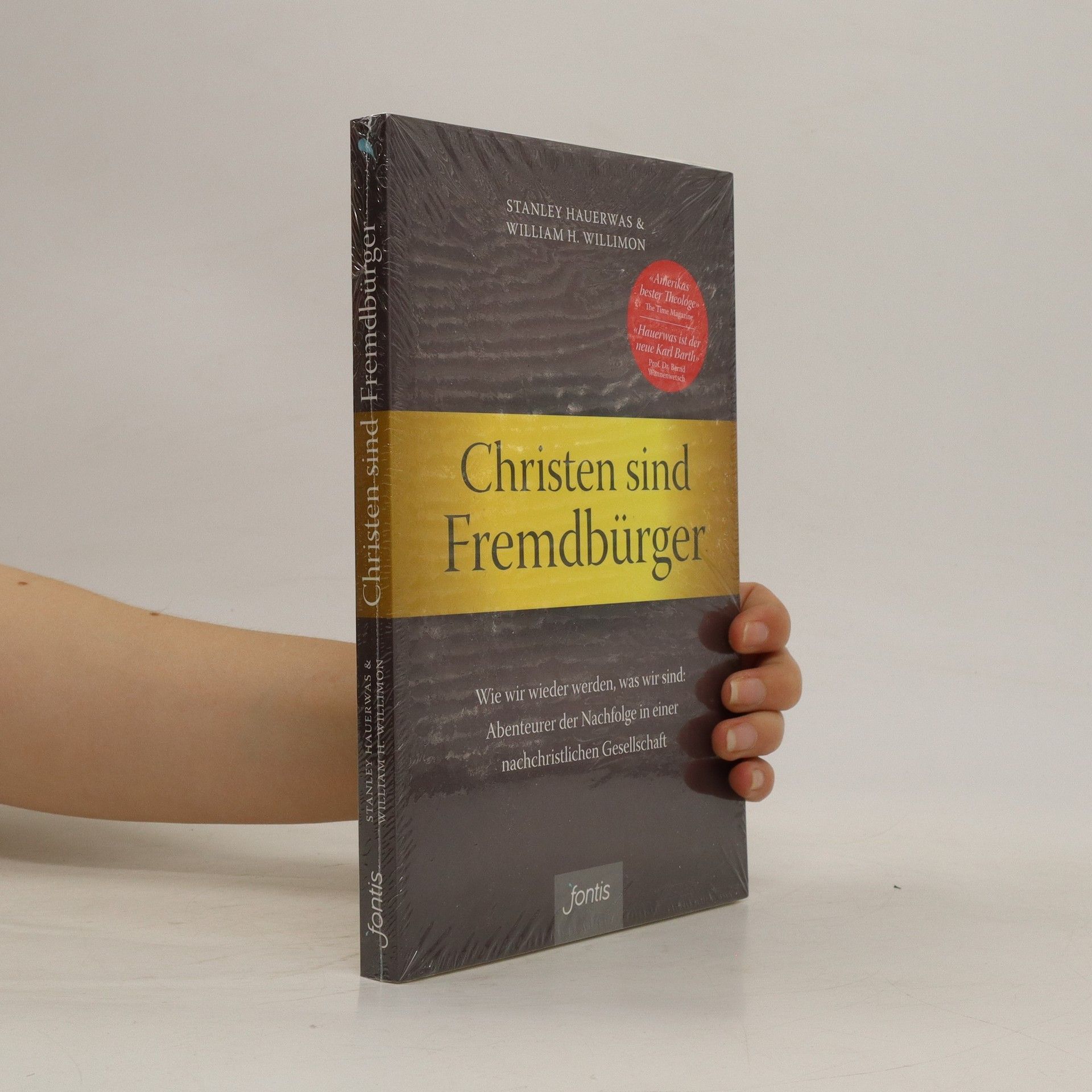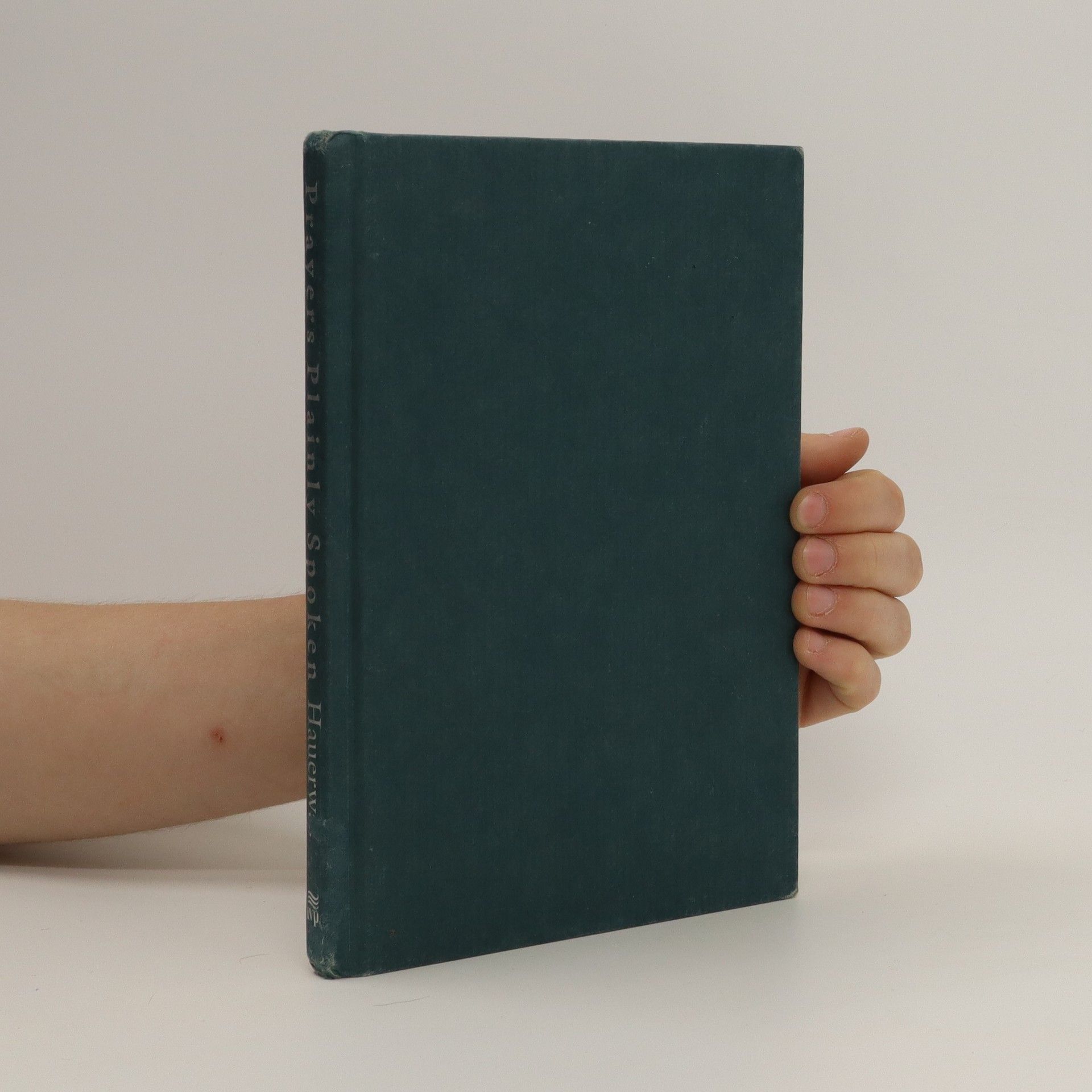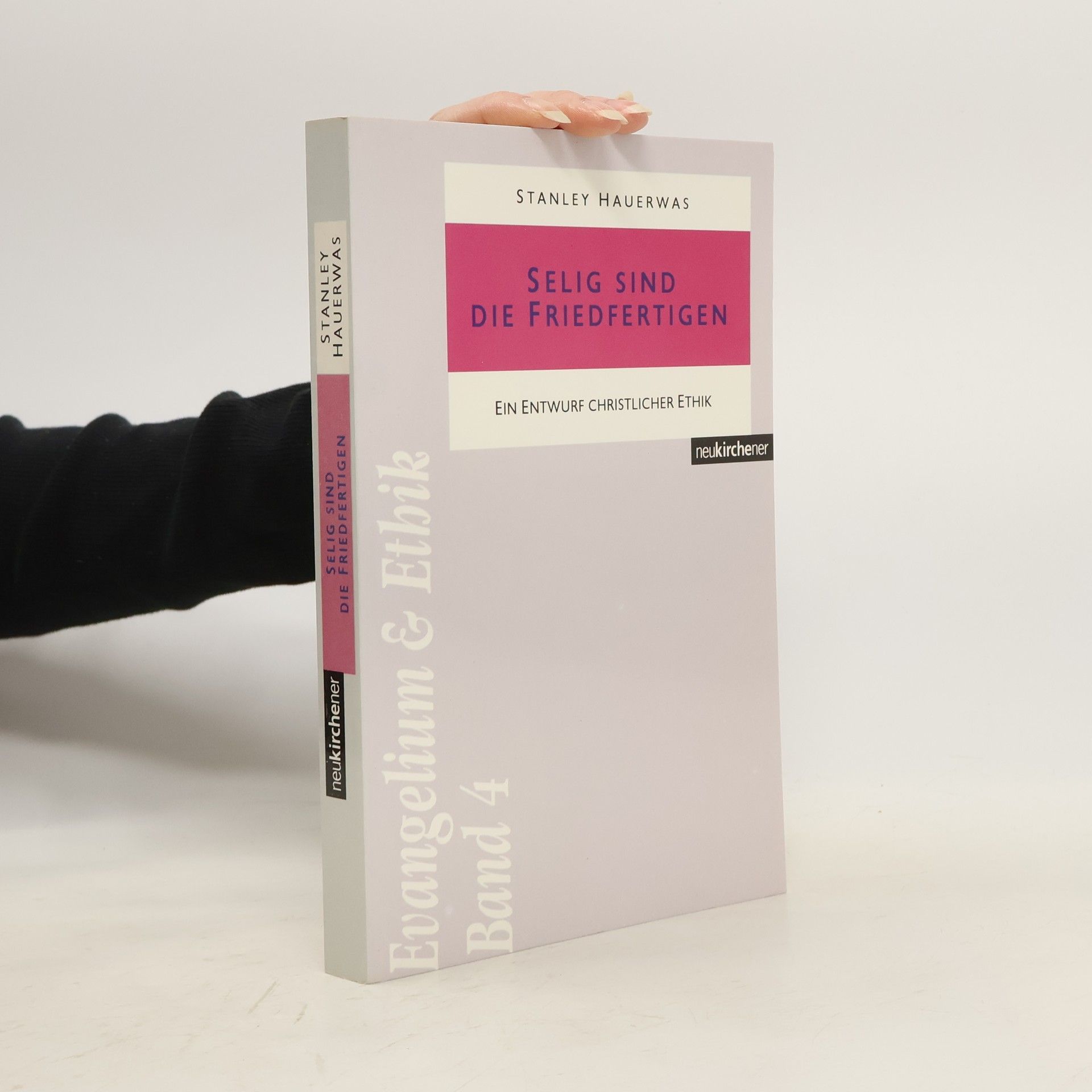Exploring the integration of the gospel into daily life, this book offers practical insights and guidance on how to prioritize faith in various aspects of existence. It emphasizes the transformative power of the gospel and encourages readers to reflect on their personal journeys, fostering a deeper connection to their beliefs. Through relatable examples and thought-provoking questions, the author aims to inspire a more profound commitment to living out the gospel's teachings in everyday situations.
Stanley Hauerwas Pořadí knih (chronologicky)
Stanley Hauerwas je přední postavou v oblasti teologické etiky, jehož práce se hluboce zabývá povahou křesťanské víry a jejím dopadem na sociální a politický život. Jeho psaní často zpochybňuje konvenční představy o násilí, válce a národní identitě, a vyzývá čtenáře k zamyšlení nad tím, jak by křesťanské hodnoty měly formovat světské chování. Hauerwasův výrazný styl a teologická naléhavost ho odlišují jako myslitele, který se nebojí klást nepříjemné otázky a nabízet radikální perspektivy. Jeho dílo vybízí k promyšlenému přijetí křesťanského závazku v neklidném světě.






Ježíšův žalm
- 111 stránek
- 4 hodiny čtení
V sedmi krátkých meditacích přistupuje autor k jádru velikonočního tajemství: "Jak je to zvláštní, že naše životy byly vykoupeny - doslova umožněny - životem, smrtí a zmrtvýchvstáním Ježíše Krista". Knížka přináší řadu pohledů na evangelijní výpovědi, které svou strohostí otevírají prostor tichu, proměně mysli i celého života.
Fully Alive
- 218 stránek
- 8 hodin čtení
Living through an apocalyptic time, Swiss theologian Karl Barth influenced Christianity in the twentieth century profoundly. In Fully Alive, Stanley Hauerwas demonstrates that Barth's radical theological perspective is particularly relevant and applicable to the challenges of our own time.
Two pioneering theologians engage in a compelling dialogue, exploring significant personal and professional themes that resonate deeply with their experiences. This volume in the In Conversation series offers insights into their beliefs and the impact of their work, providing readers with a thoughtful examination of contemporary theological issues.
Christen sind Fremdbürger
Wie wir wieder werden, was wir sind: Abenteurer der Nachfolge in einer nachchristlichen Gesellschaft
- 256 stránek
- 9 hodin čtení
Hauerwas und Willimon zeigen, wie porös das Hantieren mit christlichen Machtfantasien von jeher war, und setzen die christliche Gemeinde auf die Fährte des Nazareners: Im Zeichen der «Ohn-Macht» und gleichzeitig im Zeichen der Versöhnung liegt die Sprengkraft der christlichen Gemeinde, um die Welt zu verändern.
Prayers plainly spoken
- 132 stránek
- 5 hodin čtení
Originally prayed in Stanley Hauerwas's divinity school classroom on a variety of occasions, this collection of prayers not only displays an invigorating faith but demonstrates how Christians today can pray with all the passion of the ancient psalmists.
